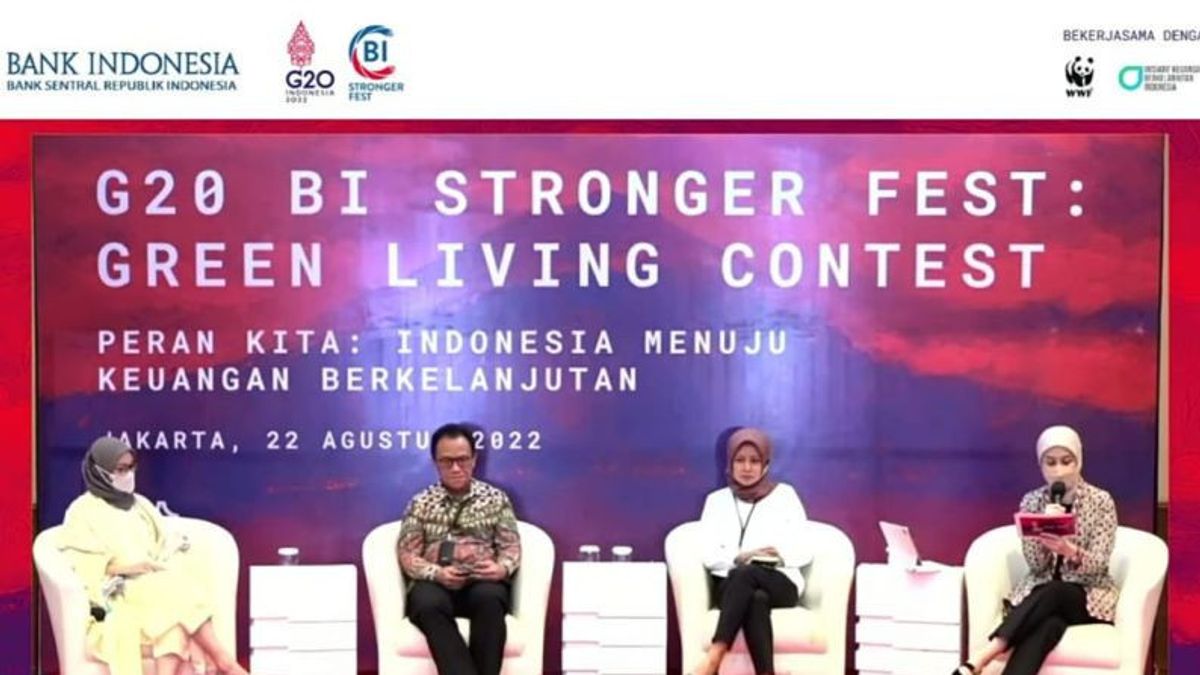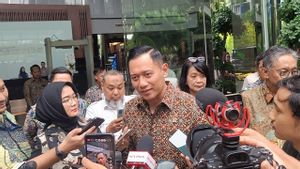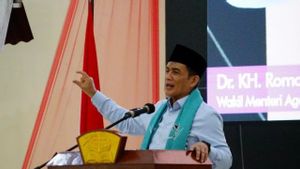JAKARTA - The President's Chair of the Sustainable Finance Working Group (SFWG) of Bank Indonesia Haris Munandar said that private investment is urgently needed to support the government in achieving the energy transition towards low-carbon development by 2030 and net zero emission by 2060.
"Therefore, this is where investment is needed. So how can we see that something sustainable is an investment opportunity," said Haris at the seminar on Our Role: Indonesia Towards Sustainable Finance by WWF Indonesia in a hybrid manner in Jakarta, quoted from Antara, Monday 22 August.
Haris said that investment in the New and Renewable Energy (EBT) sector is an opportunity for the private sector, because it will not only provide benefits for the industry, but also the sustainability of natural resources.
He said the involvement of the private sector would also greatly assist the State Revenue and Expenditure Budget (APBN), which has allocated 30 percent of the budget in an effort to achieve the energy transition.
"Then the burden of the state budget, which is only mentioned, can cover 30 percent, later it can be completed and perfected by the private sector by itself organically, from within, namely making internal investments," said Haris.
On the same occasion, the President's Chair of the Sustainable Finance Working Group (SFWG) of the Ministry of Finance, Dian Lestari, said the government had made various efforts in the energy transition. One of them, namely various financing plans as stated in the National Medium-Term Development Plan (RPJMN) 2020-2024.
Dian continued, the government has also provided various tax facilities, including tax incentives or tax holidays for industrial players in the country that support the energy transition.
In addition, the government also provides import duty exemption facilities for various equipment used for the development of New and Renewable Energy (EBT) in the country, such as geothermal.
"Also special grants for low-emission vehicles, electric vehicles and so on can be seen from the policies that we only recently issued," said Dian.
Dian said the establishment of the Environmental Management Agency, namely the Public Service Agency (BLU), which is directly under the Ministry of Finance, was also aimed at supporting the energy transition.
In the Paris Agreement related to the Nationally Determined Contribution (NDC), the government targets a 29 percent reduction in greenhouse gas emissions through APBN/APBD funding, and 41 percent with international assistance by 2030.
The English, Chinese, Japanese, Arabic, and French versions are automatically generated by the AI. So there may still be inaccuracies in translating, please always see Indonesian as our main language. (system supported by DigitalSiber.id)













